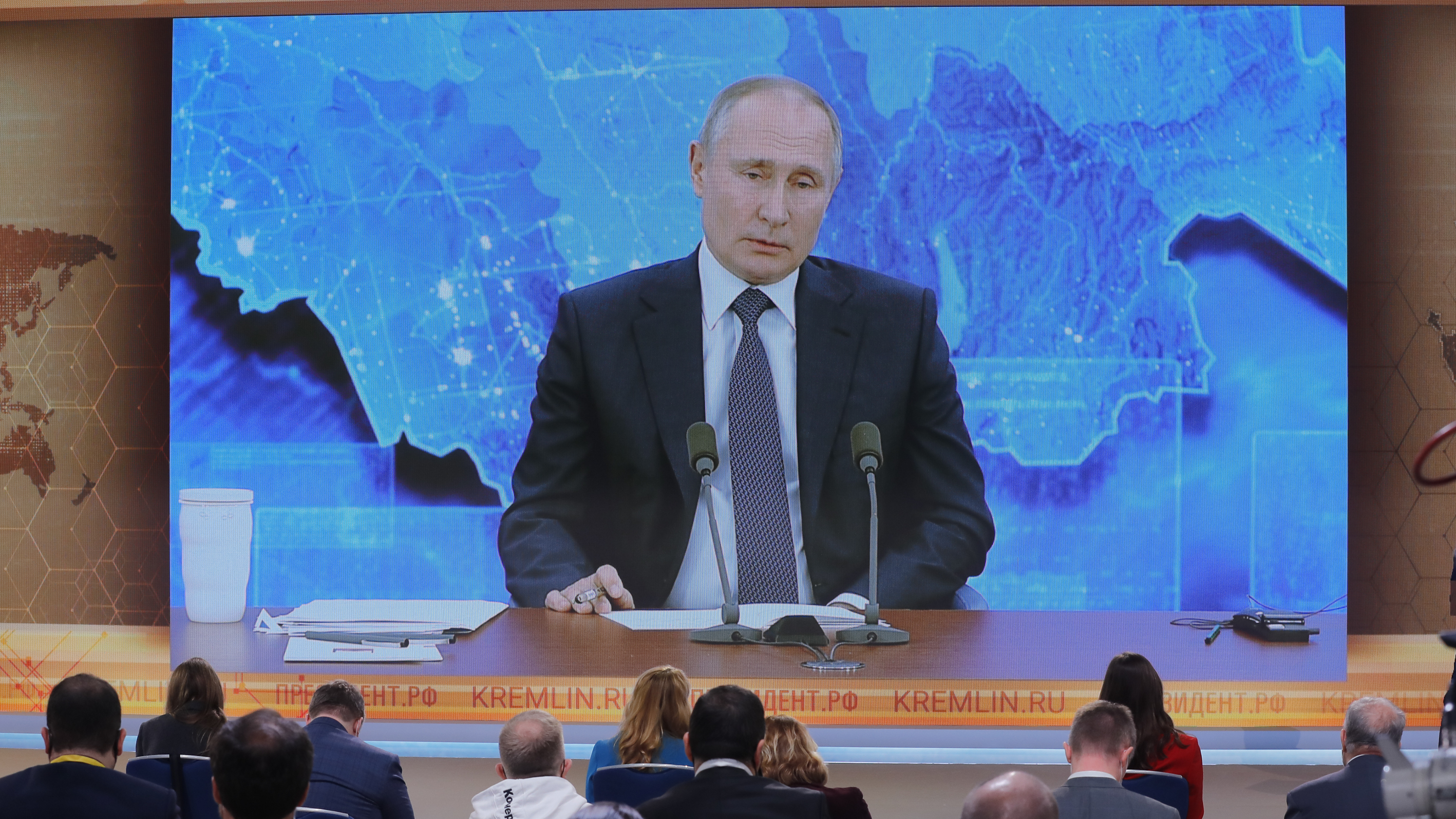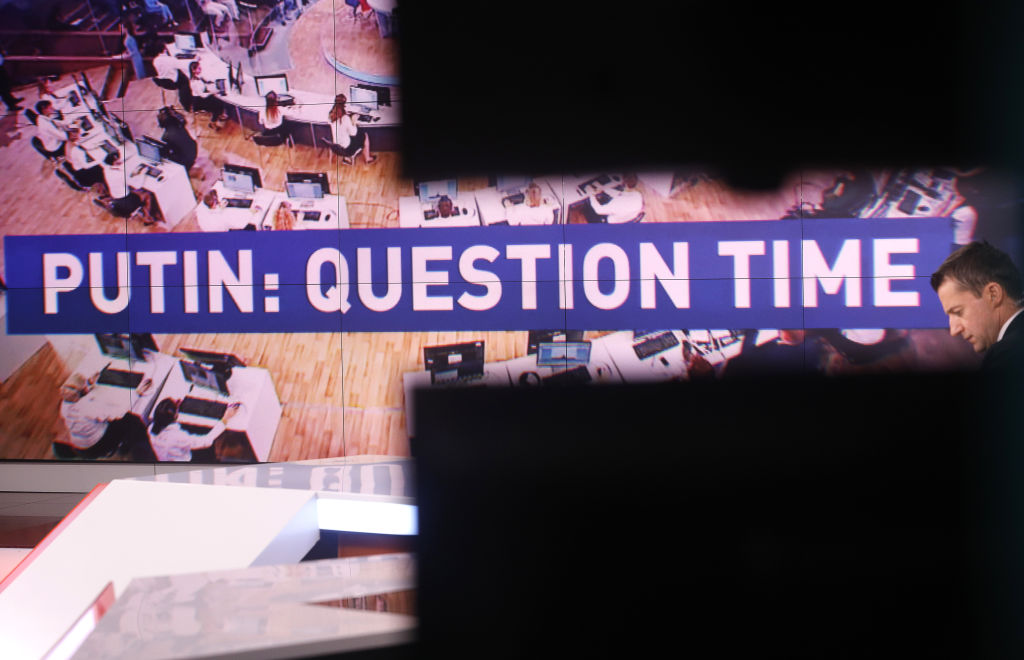
Questions are raised during Russian President Vladimir Putin's annual press conference held online in Moscow, Russia, December 17, 2020. /Getty
Questions are raised during Russian President Vladimir Putin's annual press conference held online in Moscow, Russia, December 17, 2020. /Getty
Editor's note: Andrew Korybko is a Moscow-based American political analyst. The article reflects the author's views and not necessarily those of CGTN.
President Putin's annual year-end press conference on Thursday saw him send some very strong messages to the U.S. The first one that he conveyed was his condemnation of the efforts by some countries, largely implied to be the U.S. and its allies, to blame China for the COVID-19 pandemic. The Russian leader confirmed that has not seen any evidence supporting their outlandish theories. He also called on America to lift its sanctions against other countries in order to help them combat the virus.
President Putin vehemently denied allegations that his country hacked the U.S.'s 2016 and 2020 elections. He said that these false claims have resulted in holding bilateral ties hostage to America's domestic affairs, which is against both countries' interests. The Russian leader also spoke out against the U.S.'s other information warfare narrative accusing him personally of ordering the attempted poisoning of an anti-corruption blogger over the summer who's now receiving treatment in Germany. President Putin alleged that that individual cooperates with U.S. intelligence services, who he hinted might try to meddle in next year's Russian elections.
After all, he noted, foreign forces are already interfering in neighboring Belarus' political affairs. He is totally against these provocations, saying that changes in any country should be internally driven and not influenced by external players.
He's optimistic, however, that everything will turn out well, just as he hopes that peace will soon come to Ukraine's Donbas region. The latter, however, will be dependent upon the political will of the Ukrainian leadership, who he accused of breaking international law by not abiding by the Minsk Agreements.

A live broadcast of the 16th annual end-of-year news conference by Russian President Vladimir Putin at a studio of the Russian Today television network. /Getty
A live broadcast of the 16th annual end-of-year news conference by Russian President Vladimir Putin at a studio of the Russian Today television network. /Getty
The U.S. isn't just meddling in the former Soviet sphere, but also in Europe as well. President Putin criticized the U.S.'s efforts to stop his country's Nord Stream II gas pipeline to Germany, but hoped that the incoming administration will respect all of its partners' rights to engage in win-win relations with Russia.
He also hoped that the New START nuclear agreement between their countries will be extended for at least another year before it expires in February otherwise global strategic stability will seriously worsen. On that topic, he reminded everyone that Russia isn't to blame for any of that.
President Putin said that the world is already in the midst of a new arms race which started after the U.S. withdrew from the Anti-Ballistic Missile Treaty. This in turn prompted Russia to defensively research hypersonic missile technology, something that he said that the U.S. also wants to attain but for nefarious ends. The Russian leader claimed that America wants to use this technology to deliver high-precision strikes anywhere in the world. That could undercut Russia's nuclear deterrence capabilities and thus worsen global strategic stability.
According to President Putin, NATO's steady expansion eastward since the end of the old Cold War threatens Russia's national interests. He also voiced alarm at America's global network of military bases and its enormous military budget of approximately $770 billion a year, which dwarfs Russia's own of around $46 billion by almost seventeen times. Another serious point of concern is the Trump Administration's abandonment of several strategic pacts with Russia over the past few years including the Intermediate-Range Nuclear Forces (INF) Treaty and Open Skies Treaty.
Altogether, Putin projected an image of strength, confidence, and determination in defending Russia's legitimate national interests. He sent America the message that its meddling and aggressive military moves are unacceptable, as are its ridiculous efforts to blame China for COVID-19. Nevertheless, the Russian leader is open to cooperation with the next U.S. administration and hopes that it'll be much more pragmatic than the outgoing one. The ball's therefore in president-elect Joe Biden's court, who can either continue U.S. President Trump's dangerous hostility against Russia or chart a new era of cooperation with the whole world.
(If you want to contribute and have specific expertise, please contact us at opinions@cgtn.com.)

